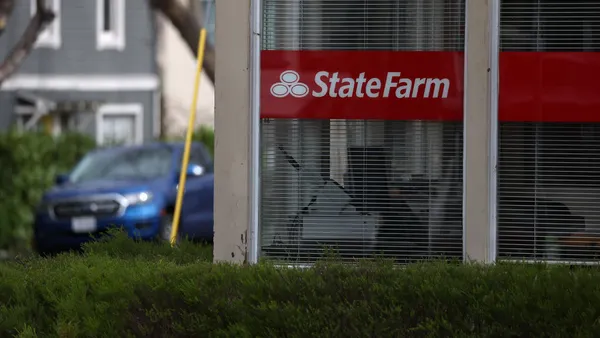Dive Brief:
- The Trump administration announced new details about a plan to expand apprenticeship programs in a to-be-published Notice of Proposed Rulemaking (NPRM) on Monday.
- According to the U.S. Department of Labor (DOL), the NPRM would establish a process under the National Apprenticeship Act to recognize certain groups as standards recognition entities (SREs) that would be able to set standards for training, structure and curricula for industry-recognized apprenticeship programs. This would be a new approval process separate from the department's standard approach of registering individual programs and apprentices, DOL said. The agency said SRE classification would be open to many types of organizations, including employer associations, but noted it would evaluate SREs on a set of criteria, including whether an applicant "has expertise to set standards through a consensus-based process" for apprenticeships.
- DOL previously spelled out industry-recognized programs as apprenticeship programs that include a paid work component as well as an educational or instructional component. Such programs would also provide mentorship, industry-recognized credentialing, safety and supervision, and would be governed by equal employment opportunity regulations. DOL said it would publish a separate notice on Tuesday, June 25 to provide further guidance as well as an updated application form. There will be a 60-day public comment period for the NPRM.
Dive Insight:
Employers have sought more clarity on the Trump administration's apprenticeship plan amid news reports that suggested it had stalled. Politico reported in February that the plan was "crashing" according to an unnamed agency official at the same time that DOL postponed an announcement about its apprenticeship initiative. The process appears to be moving forward again with this latest development.
The proposed rule released on June 24 could significantly expand the number of apprenticeships made available. A notable aspect of the proposal is its language around standards recognition entities. DOL said its approach of not limiting the types of entities that could pursue SRE classification was tied to its goal of encouraging apprenticeship growth in multiple industries and occupations. Companies would be able to develop apprenticeship proposals, but could not be SREs on their own; SREs would also not be allowed to recognize their own apprenticeship programs. "The Department believes this requirement of independence between the SRE and Industry Program encourages fairness and guards against conflicts of interest, and is already a common requirement," DOL said.
The proposal would also prohibit SREs from offering consultative or educational services to programs that would impact their impartiality, nor would SREs be able to recognize an apprenticeship program for longer than five years at a time. Automatic renewal of programs would also be prohibited. SREs would be evaluated by the Administrator of the DOL's Office of Apprenticeships.
One knock against apprenticeships is the cost and who is responsible for it. DOL said in a press release that it would create awards totaling $183.8 million in grants to support apprenticeships that specifically involve partnerships between companies and educational institutions, as well as an additional $100 million to expand apprenticeships and "close the skills gap." A total of 23 academic institutions across 18 states have been awarded the former category of grants, DOL said.
Though not a new concept, apprenticeships have changed to encompass white-collar as well as blue-collar trades in recent years. Insurer The Hartford, for example, created partnerships with colleges to train new graduates for work in the insurance industry.











